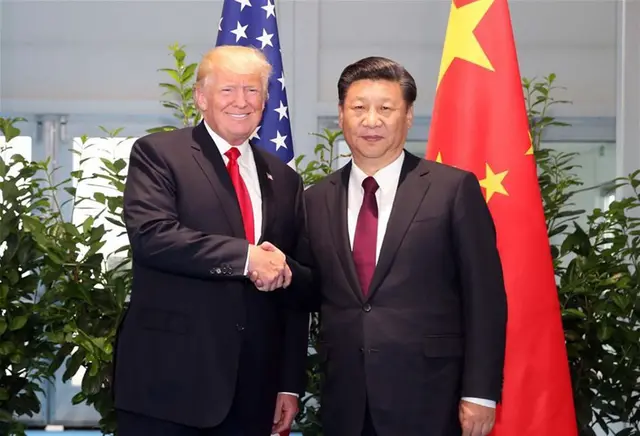As the 100-day trade talks between China and the US
close today, the world's two largest economies will build on initial
results and extend their economic cooperation by a year in a forthcoming
comprehensive economic dialogue (CED).
The CED is
one of the four high-level dialogue mechanisms initiated after the first
meeting between Chinese President Xi Jinping and US President Donald
Trump this April at Mar-a-Lago, where the 100-day economic cooperation
plan was also initiated.
The first round of the CED, led by Chinese Vice Premier
Wang Yang, US Treasury Secretary Steven Mnuchin and Commerce Secretary
Wilbur Ross, will kick off on Wednesday in Washington, DC, according to
Geng Shuang, a spokesman for Chinese Ministry of Foreign Affairs.
It
will sum up initial results of the 100-day plan and discuss what lies
ahead for the one-year plan, said Gao Feng, a spokesman for Chinese
Ministry of Commerce (MOFCOM).
Initial results of the 100-day plan
The 100-day plan's initial actions, released in mid-May,
have been completed as of today. The 10 initial results cover five
sectors, namely agricultural products, energy, financial services,
investment, and people-to-people exchanges between the two countries.
For
example, in terms of agricultural products, China permitted conditional
beef imports from the US on June 20, according to Chinese
Administration of Quality Supervision, Inspection and Quarantine. It is
buying US beef again after a 14-year ban.
From the US
side, the country issued a proposal to accept imports of cooked poultry
from China on June 16, according to the US Department of Agriculture's
Food Safety and Inspection Service, though comments on the proposal are
due on August 15.
China has also actively increased
imports of some US products to ease the US trade deficit with the
country. The US trade surplus with China in the fields of crude oil,
cotton, soybeans and wheat have risen substantially, according to the
MOFCOM.
"Deals such as the soybeans definitely
create favorable conditions for negotiations," said Gai Xinzhe, an
analyst at Bank of China’s Institute of International Finance in
Beijing.
"Trump is a businessman and loves making
deals. These will give Trump something he can announce at home. But
ultimately it’ll take a very long time to resolve the trade imbalance,"
Gai noted.
What next for the one-year plan?
The consensus on developing a new one-year economic
cooperation plan was reached by both countries' leaders in their second
meeting on the sidelines of the G20 Summit in Hamburg earlier this
month.
The one-year plan will likely include more
goods and services than the initial 100-day version, possibly in the
areas of aviation and aerospace, automobiles, chemicals and other
high-tech products in which the US has an absolute advantage, said Liang
Ming, a researcher from the Chinese Academy of International Trade and
Economic Cooperation, MOFCOM.
With regard to
services, apart from further opening up of the financial market, China
is expected to expand imports of services like transportation,
consulting, patents and films, said Liang. The country will be more open
in the aspects of accounting, advertising and law, said Wang Hanfeng,
an analyst at China International Capital Corporation in Shanghai.
To
ensure "successful outcomes", the US will probably have to make some
concessions on China's market economy status, the US control of exports
to China, as well as China's access to US infrastructure construction,
Liang noted.
 简体中文
简体中文

